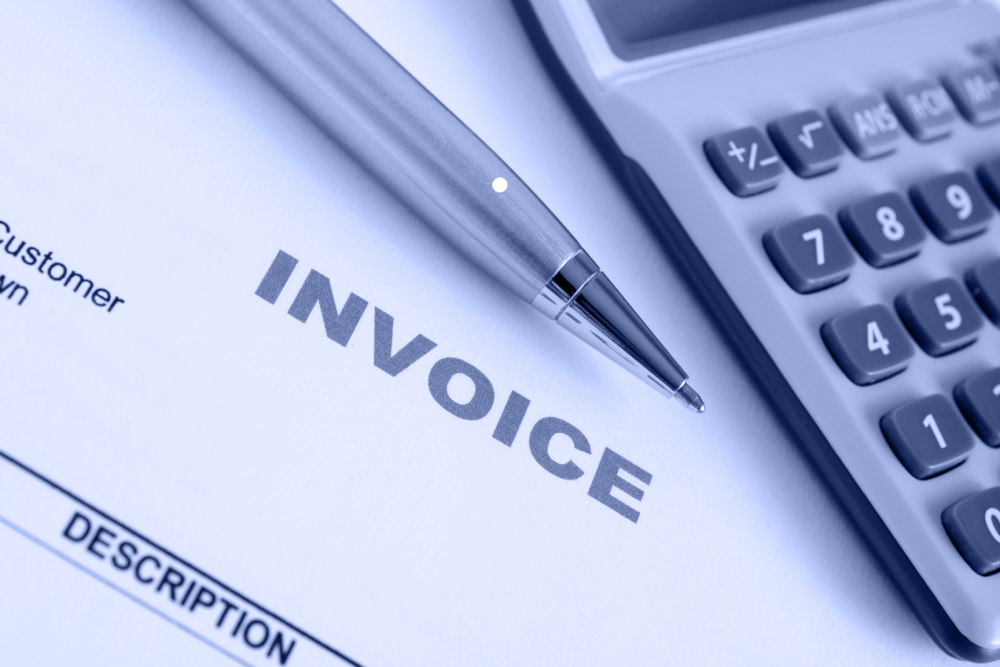
It would be nice if you could send an invoice, then sit back and watch the money roll in. But half of all invoices are paid late. And some aren’t paid at all. So how do you handle outstanding invoices?
Some people – like credit control managers, accountants and debt collectors – make a living out of getting invoices paid. Their methods aren’t rocket science. Just a mix of persistence and courage. If you’ve got outstanding invoices, try their techniques. Here are their tips on how to collect money (and many experts recommend starting at number 4, by the way)
This is your first move when someone is late paying an invoice, so there’s no need to overthink it. Open your note with a polite greeting, quote the invoice number, say when it was due, and ask when you can expect payment. There’s no need to explain what the invoice was for. The details should be on the invoice itself. Keep the letter or email really short.
You could send an overdue invoice, which is really just the original invoice with an ‘overdue’ stamp on it. Or you could simply re-attach the original invoice to your payment request email, with or without the overdue stamp
A statement of accounts shows all the outstanding invoices a particular customer has with you. If someone has a few, by all means summarise them into one document or use your accounts software to generate a statement. But don’t expect it to hurry them up unless you follow with a phone call.
Businesses that chase late payers by phone tend to get the best results. Customers can always screen your call but, once you have them on the line, it’s hard for them to ignore you. Don’t say too much. They’re the ones who need to do the talking. Just identify what’s overdue, ask when it will be paid, then wait in silence. Don’t get off the phone till they’ve told you when payment will arrive
You can demand more money if payment is late, but you can’t do it out of the blue. You need a late-fee policy and it must be clearly communicated up front in your payment terms. This is a great reason to get an agreement signed before supplying anything.
Identify late fees on the invoice, too. Don’t make it complicated. Some businesses quote it as a percentage but you’re better off to do the maths for your customer. Say something like:
Total due by 1 June: £100
Total due after 1 June: £110
Write (or call) to tell a customer when they’ve entered late fee territory. You could even offer to waive the fee if the customer pays right away.
Why would you keep providing goods or services that you’re not getting paid for? It’s unsustainable. If a customer stops paying, stop filling their orders. And tell them what bills need to be paid before you’ll start supplying them again.
This is an aggressive move and some customers will take offence. You need to be prepared to lose the business to do this.
Debt collectors have a skill for getting overdue invoices paid. It should cost nothing to put them on a case, but they’ll take 25% or more of the money they collect. This is likely to bring an end to your relationship with the customer so make sure you’ve exhausted all your other options.
If the debt collectors don’t make any progress, then you could go all the way and hire a lawyer. The specific legal action will depend on the type of organisation you’re dealing with. It’s different for sole traders, partnerships and companies. In other words, it can get complex – so use a specialist lawyer. Your debt collector might have inhouse legal expertise, or they may introduce you to a lawyer.
You have a lot of levers for getting paid, but sometimes none of them work. You may get stuck with an unpaid invoice. If that happens, you should write it off so your accounts reflect the lost income. That’s especially important if you’ve already paid tax on the income that was expected. The act of writing it off allows you to claim the tax back.
To reduce your chance of getting caught with an unpaid invoice in the future, consider doing credit checks on prospective customers before agreeing to work with them.
